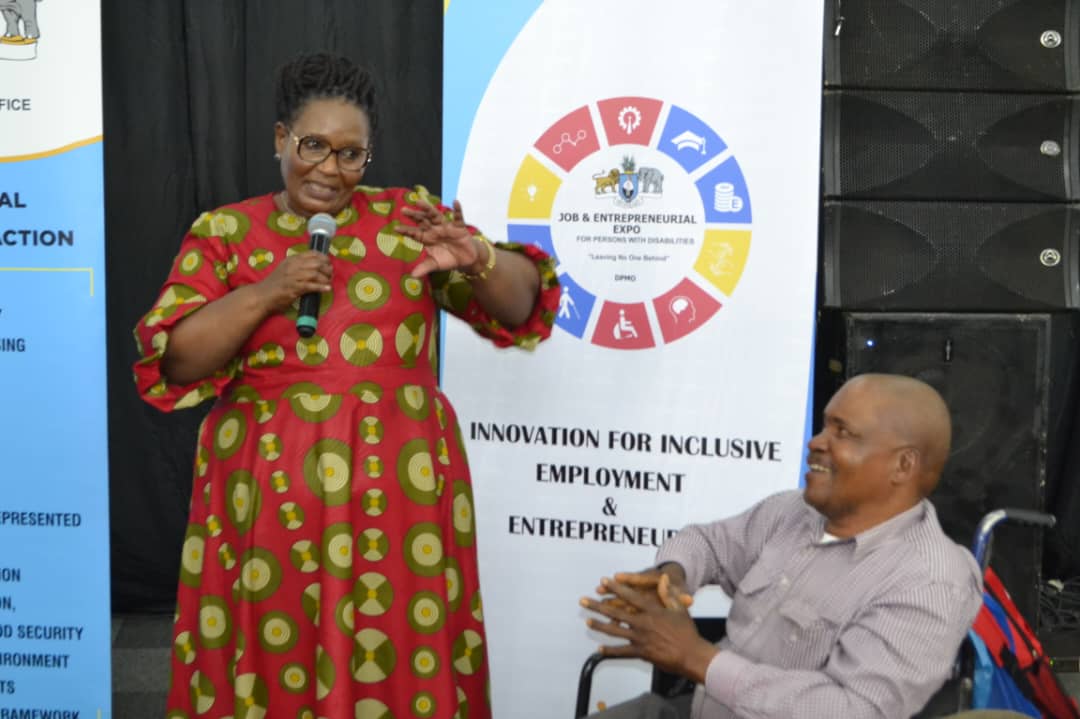By Thokozani Mazibuko
DEPUTY Prime Minister Thulisile Dladla has introduced the National Disability Action Plan (NDPA) 2024–2028, a significant initiative aimed at tackling unemployment among persons living with disabilities (PLWDs) in Eswatini.
Speaking at the inaugural national job and entrepreneurship expo for individuals with disabilities, the DPM pointed out the troubling statistic of 15,529 unemployed individuals with disabilities, highlighting a crisis that requires urgent and sustained efforts.
“Individuals living with disabilities frequently encounter significant challenges in securing employment,” Dladla remarked, stressing the systemic issues of discrimination, accessibility, and a lack of opportunities for skill development that lead to the disturbingly high unemployment rates in this demographic.
The 2021 Labour Force Survey revealed an unsettling disparity — 5,667 males and 9,862 females are jobless, showcasing the disproportionate effect on women.
The Deputy Prime Minister’s comments served as a powerful call to address the “elephant in the room” concerning employment and disability rights.
RELATED: “Increase in SACU attributable to the people” – DPM
“We can no longer ignore the obstacles that hinder our citizens with disabilities from entering the job market,” she asserted.
“It is our moral and legal responsibility to ensure that everyone has the right and opportunity to work and contribute to our economy.”
Referencing research from the International Labour Organization (ILO), Dladla highlighted the global trend indicating that persons with disabilities are three times more likely to be engaged in the informal economy than their non-disabled peers.
This lack of access to decent jobs not only limits economic potential but also prevents individuals from achieving stability and security in their lives.
The awareness campaign is rooted in Article 27 of the Convention on the Rights of Persons with Disabilities, which emphasizes the right to work on an equal basis with others.
The NDPA aims to implement comprehensive strategies that include inclusive education, skill development, and the promotion of equitable access to the open labour market.
“We are dedicated to ensuring inclusive education and training, along with skill development initiatives that empower individuals with disabilities to succeed in the job market,” Dladla passionately stated.
“This is not just about meeting quotas; it’s about creating meaningful opportunities that uphold the dignity and rights of all our citizens.”
Recognizing the challenges faced by PWDs, the Deputy Prime Minister’s office is proud to spearhead this initiative, fostering dialogue, awareness, and change.

The expo provided a crucial opportunity for participants to connect with potential employers, gain insights into entrepreneurship, and access resources aimed at improving their employment prospects.
As the government proceeds with the NDPA implementation, Dladla’s actions reaffirm Eswatini’s commitment to inclusivity and equal rights for all.
By addressing the elephant in the room and advocating for comprehensive solutions, the DPM is paving the way for a future where persons with disabilities can participate fully and equitably in the workforce, promoting a stronger, more inclusive society for everyone.
The Employment Landscape for People with Disabilities in Other African Nations Remains Grim In the wake of ongoing global efforts for economic recovery post-Covid-19, one demographic continues to face disproportionate challenges: Persons Living with Disabilities (PLWDs).
Across Africa, the struggle for equitable employment opportunities for people with disabilities underscores significant economic inequality, prompting vital discussions on accessibility, employability, and the urgent need for inclusive policies.
A recent report by the African Union and the International Labour Organization indicates that unemployment rates for PLWDs in various African countries remain alarmingly high, often exceeding 80%.
Here’s a brief overview of the situation:
- Nigeria: Approximately 85% of persons living with disabilities are unemployed. Cultural stigmas and a lack of awareness regarding disability rights further worsen the scenario.
- South Africa: The unemployment rate for PWDs is around 34%, notably higher than the national average of 34.5%. While policies exist to support inclusive workplaces, their implementation is inconsistent.
- Kenya: The unemployment rate for PLWDs is about 70%. Although legal frameworks are in place to safeguard rights and promote employment, many employers overlook inclusion in their hiring practices.
- Ghana: Studies reveal nearly 80% unemployment among persons with disabilities, primarily due to limited accessible job opportunities and widespread workplace discrimination.
- Uganda: With an unemployment rate of approximately 75% among PLWDs, barriers to education and vocational training exacerbate the challenges faced by this community.
Despite these discouraging statistics, progress is being made. Governments, non-governmental organizations, and community advocates are increasingly advocating for equitable employment for PLWDs.
Initiatives focused on raising awareness, enhancing access to education and vocational training, and encouraging businesses to adopt inclusive hiring practices are starting to take hold.
However, numerous challenges remain. In many countries, employers still perceive individuals with disabilities through a lens of pity rather than capability.
RELATED: DPM hands over new home and Neighbourhood Care Point
A prevailing misconception links disability to low productivity, discouraging businesses from creating job opportunities.
Additionally, infrastructural deficiencies, such as inadequate transportation and inaccessible workplaces, often render existing job opportunities unreachable for PLWDs.
Organizations like the African Disability Forum have called for more robust enforcement of existing laws that protect the rights of PLWDs and promote equal access to employment.
They emphasize the necessity for governments to incentivize businesses that actively hire individuals with disabilities, cultivate inclusive workplace cultures, and implement necessary adjustments to ensure that PLWDs can thrive in the workforce.
Moreover, individuals with disabilities are stepping up to the challenge. Many are becoming entrepreneurial leaders, establishing businesses that not only support their families but also provide employment for fellow PLWDs, demonstrating a model for self-sufficiency and social impact.


